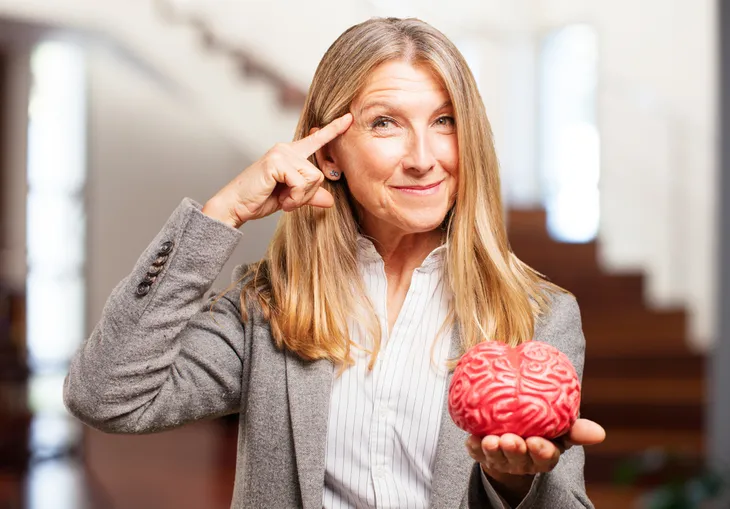There isn’t a one-size-fits-all secret to successful aging, but it seems scientists are getting close to figuring it out. There has been tons of research looking into when, why, and how we age. The information we know so far gives us a pretty good idea of how we can age gracefully and healthily.
While some things are out of our control during the aging process, there are things we can prioritize in order to age well. Here’s a rundown of what successful aging looks like and what can be done to achieve it.
What Is Successful Aging?
So, what exactly is considered successful aging? Everyone has their own opinion on the matter. Even scientists have come up with varying definitions of what it means. What’s clear is successful aging is about longevity and expanding the number of functional years in a person’s lifespan.
One concept defines successful aging as high physical, psychological and social functioning in old age without major diseases. Forbes explains how this definition was coined in the 80s by scientists John Wallice Rowe and Robert Kahn in a book called Successful Aging.
The Three Components of Successful Aging
Rowe and Kahn’s definition discusses three general factors. It considers both genetic and lifestyle choices, which means aging successfully can potentially be achieved by choice and health history. The three components are:
- Being free of disability or disease.
- Having high cognitive and physical abilities.
- Interacting with others in meaningful ways.
Now, let’s get into some detail about each of these aging components.
High Cognitive Abilities
Cognitive abilities refer to a person’s perception, attention, memory, and higher functions. A person’s cognitive function will always be an individual experience. According to one article, being able to maintain cognitive abilities and preventing memory disorders are key components in successful aging.
A person with good cognitive function typically may have things like a reliance on memory and cognitive reserve. More research still needs to be done on this, especially since existing research shows large differences in standards for cognitive aging.
High Physical Abilities
Not only is brainpower important, but so is your physical wellbeing. That’s because a decrease in muscle mass and strength can age you in many ways. Plus, decreased physical abilities make you more vulnerable to certain diseases.
A good way to measure your physical function is based on your walking speed. It gives you a general idea of your health and could predict future physical function. Overall, research shows that regular physical activity is one of the best ways to age successfully.
Interacting With Others
Humans are social beings, which is why interacting with others is another essential part of successful aging. Research suggests that being actively engaged in life, particularly older adults, has a positive impact. It gives people a role in society and with other people. Engaging in society can also prevent one from feeling lonely.
Finding new people with like-minded interests is a great way to engage in your community. Consider volunteering for a cause you care about or joining a club. You could also join a sports league, retirement community, or simply plan weekly dinners with your family. The more you socialize, the more engaged you will feel in society.
Avoiding Disability and Disease
Another aspect of successful aging is avoiding disability and disease. Of course, this is not always something you can control. Many people are diagnosed with chronic or hereditary ailments that cannot go away. The good news is, this isn’t the most important element of successful aging.
People living with a chronic disease are certainly able to grow old and maintain good health. But living a healthy lifestyle can help lower your chances of developing certain health problems like heart disease, diabetes, and many others.
Another Take On Disability and Disease
There are some issues surrounding this aging model. It rejects the notion that a person living with a disability or disease cannot age successfully. Rather it suggests that successful aging means finding ways to cope with impending existing illness, losses, and other challenges.
This take is more reasonable, especially since an article published in the U.S. National Library of Medicine reports that nearly half of all Americans are living with at least one chronic disease. People can overcome their health challenges and still be able to experience positive outcomes in life.
The Keys to Healthy Aging
Although things like cognitive abilities and chronic diseases are things you can’t necessarily control, there are things you can do to increase your chances of aging healthily. One of those things is consuming a well-balanced diet.
Fruits and veggies can help reduce the risk of many illnesses. Unfortunately, the Centers for Disease Control and Prevention (CDC) reports that only one in 10 adults eat the recommended amount. Women should try to eat 1.5-cups of fruit and 2.5-cups of vegetables per day. Men should aim for at least 2-cups of fruit and 3.5-cups of vegetables per day.
More Diet Tips
In addition to eating fruits and vegetables each day, there are plenty of more things to consider in your diet. This includes:
- Opt for whole grains.
- Limit foods high in saturated and trans fat.
- Choose lean sources of protein over red meat.
- Get daily fiber.
- Drink lots of water.
- Consume less salt.
- Get your daily dose of essential vitamins.
Get Daily Exercise
Another key to successful aging is to make sure to get at least 30-minutes of physical activity every day. According to one analysis on American adults aged 50 to 71, “those who had exercised between two and eight hours a week from their teens through to their 60s, had a 29-36% lower chance of dying from any cause over the 20-year study period.”
Use exercise as an excuse to be social with other people. Join a sports league, go on daily walks with friends, or partake in a dance class. Getting active with others will be beneficial for both your body and your social well-being.
Get Good Quality Sleep
Along with a good diet and physical exercise, sleep also plays a role in how we age. Sleep is so important because it allows your mind and body to recharge and in turn keeps you healthy. Further, without adequate sleep, your brain can’t function as it should.
Healthy adults need about 7 to 9-hours of sleep per night and if you’re not getting enough sleep you might need to reassess your sleeping habits. Thankfully, there are easy sleeping tips you can follow to get more rest. It might be as simple as investing in a new mattress and pillow or sticking to a schedule. Either way, make sure you invest in your sleep!
Other Ways to Age Gracefully
Your diet, exercise, and sleep are three of the most important factors in aging successfully. But many other factors contribute to aging too. Here are some easy things you can do to increase your chances of successful aging.
- Wear sunscreen every day.
- Take care of your mental health.
- Quit smoking and limit alcohol intake.
- Manage your stress levels.
- Drink lots of water.
- Get regular checkups from the doctor.
- Practice mindfulness.















